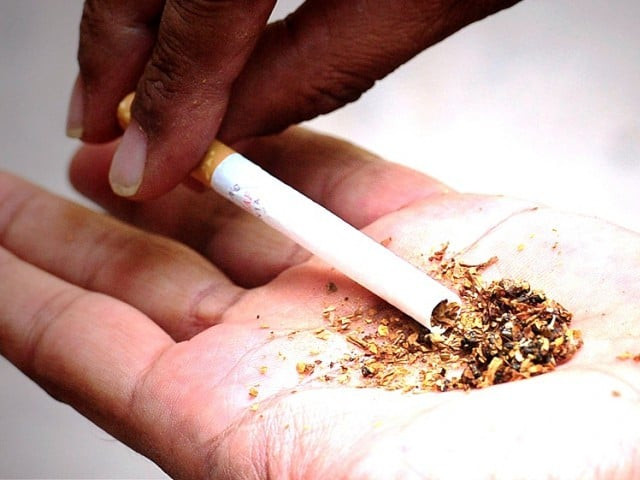UNODC report: Pakistan risks becoming drugs-consuming country
Representative offers technical support to counter drug trafficking

Globally, of the 247 million drug users, cannabis was the most widely consumed narcotic with 182.5 million users.
PHOTO: AFP/FILE
“Slowly and surely, they [drug traffickers] are building a market for illicit drugs here,” said Cesar Guedes, the Pakistan representative of UN Office on Drugs and Crime (UNODC), while unveiling the annual UN World Drug Report in Karachi.
“Russia was once a transit country for drugs, but after many years it became a net consuming country,” he said, as he pointed out that Brazil too had gone from being a transit country to become a consuming country over a period of 20-25 years replacing the US as the top cocaine consumer. “Pakistan is not at that stage yet, but more needs to be done [to prevent that],” he said as he went on to hint that drug traffickers target emerging economies with large youth base for their products.
Guedes pointed out that there are two major drug hubs in the world: Latin America for cocaine and Afghanistan for opiates. With Afghanistan producing 70 per cent of the world’s illicit drugs, around 42-43 per cent of this is trafficked through Pakistan.
“Karachi is the largest transit hub of drugs,” he said while explaining UNODC Pakistan chapter’s decision to launch the report in the metropolis instead of the federal capital. “We need to allocate greater resources, team up, provide greater technical resources to curb drug trade,” the UNODC official said.
He later told The Express Tribune that UNODC’s role in the country has gone through ups and downs and has evolved over the past 30 years as per the requirement, shifting from tackling poppy cultivation to currently providing technical assistance in detecting, intercepting and forensics of trafficked drugs.
Ajaz Ali Khan, Secretary of Narcotics Control Ministry, said the government had seized around 342 tonnes of illicit narcotics worth $2.5 billion in 2015. It coincided with a dramatic increase in cooperation with UNODC. He agreed with Guedes that Karachi suffers the most in the drug war and requires special treatment. “We need to focus on demand reduction,” Khan said as he outlined his strategy for curbing the drug trade included controlling drug demand and supply simultaneously to curb it.

He pointed out that the government is pursuing a three-pronged counter-drug strategy that focuses on curbing supply of drugs, demand of drugs and international cooperation. “If your [drug trafficking] preventive efforts are good, they [drug traffickers] divert [to other pliable routes].”
Revealing that while the role of provinces in tackling drug trafficking has increased since the 18th constitutional amendment, Khan said the federal government was still working with the provinces on countering drug trafficking. “It is the need of the hour for the provinces to do more for drug demand reduction.”
Global drug usage
Globally, of the 247 million drug users, cannabis was the most widely consumed narcotic with 182.5 million users.
The report showed that opioids and cannabis are the most prevalent form of drugs in Pakistan. It also showed that cocaine and amphetamines were also consumed to a lesser extent. It also showed that drug production in Pakistan stood at nine tonnes of opium with poppy being cultivated over 372 hectares in 2015. This was up from five tonnes with poppy being cultivated over 217 hectares in 2014. At the same time, Pakistan reported having destroyed poppy over 605 and 1,010 hectares in 2015 and 2014 respectively.
Published in The Express Tribune, August 25th, 2016.



















COMMENTS
Comments are moderated and generally will be posted if they are on-topic and not abusive.
For more information, please see our Comments FAQ